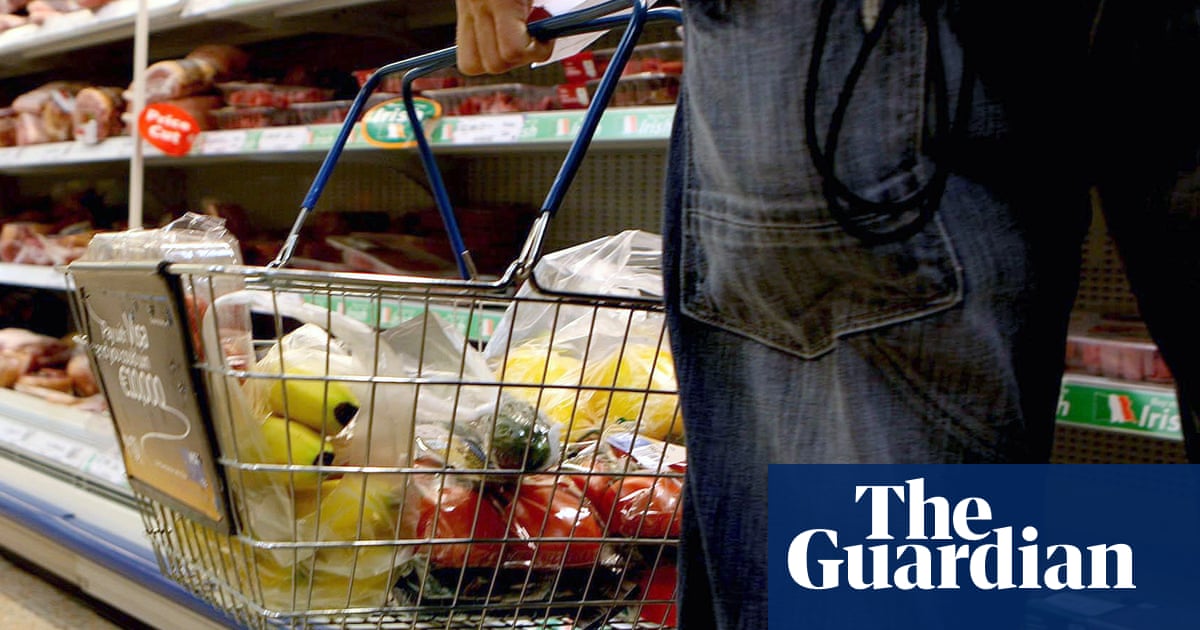
How much is just enough to get by? According to new research, it is £120 a week. After housing costs, that is the bare minimum required for an unemployed single adult in the UK to eat regularly, heat their home, have the odd shower, take the odd bus trip, use a mobile phone, and, well, not do too much else.
If you are one of Monty Python’s four Yorkshiremen or a certain kind of backbench Conservative MP, £120 a week will seem an absurd luxury. If you are a poverty researcher, on the other hand, it’s a relatively modest sum that offers a big upgrade on current benefit levels while only scratching the surface of the UK’s “deep poverty” problem.
The “essentials guarantee” basket of costs drawn up by the Joseph Rowntree Foundation (JRF) and the Trussell Trust sets aside £37 a week for food for a single adult or £67 for a couple, £35/£44 for energy; £16/£32 for travel, and £13/£23 for sundries such as toiletries, washing-up liquid, toothpaste, hair cuts and bank charges (£23). Water bills, phones and internet, and clothes together account for another £20/£31 a week.
The intention was certainly to aspire to the austere – “the more stringent and conservative end of the spectrum”, the charities say. It is modelled partly on official data that tracks what low-income households actually spend, and has been reality-checked with benefit claimant focus groups.
The estimates exclude alcohol, cigarettes and Netflix subscriptions (though it includes £3 a week for the BBC licence fee). It assumes the person rents (nothing for house maintenance and insurance or replacing broken fridges and cookers). Travel allowance is the equivalent of eight bus rides a week, precluding running a car.
Whether you think £120 a week is frugality gone mad or reckless indulgence, it brings into perspective the equivalent basic rate of universal credit, which will be £85 a week for a single adult after April’s 10.1% increase. Think you might struggle on £120? It is £35 – equating to at least £140 a month – more than what that basic safety net offers, even before benefit deductions shrink that net.
The charities’ point is that the UK’s social security benefits have become so eroded in recent years that they no longer provide a realistic or secure safety net. A typical worker losing their job can see their income fall off a cliff when they claim unemployment benefits; universal credit replaces just 13% of average earnings. Raising the basic rate would help the jobless and workers on low incomes.
The government argues that keeping benefit levels low incentivises people to find a job or to work more hours. It prefers one-off crisis help, such as the cost of living support payments or the temporary £20-a-week Covid premium. The £20bn price tag of the essential guarantee is frivolous and impractical.
The charities argue these ad hoc payments are temporary sticking plasters that avoid the deeper costs and social problems stemming from the growth in poverty-related hardship. The consequences of a threadbare safety net, they say, are rampant destitution, in-work poverty, increasing food bank use, debt and mental illness.
Witness the proliferation of disaster stories of the hungry-kids-turning-up-at-school-with-empty-lunchboxes variety. The cost of living crisis has highlighted such horrors, but these scandals, of people going without, trapped in abject poverty, have been germinating for some time.
from "short" - Google News https://ift.tt/sRgtDaf
via IFTTT
Bagikan Berita Ini















0 Response to "Bare minimum costs calculation shows how UK benefits fall short - The Guardian"
Post a Comment